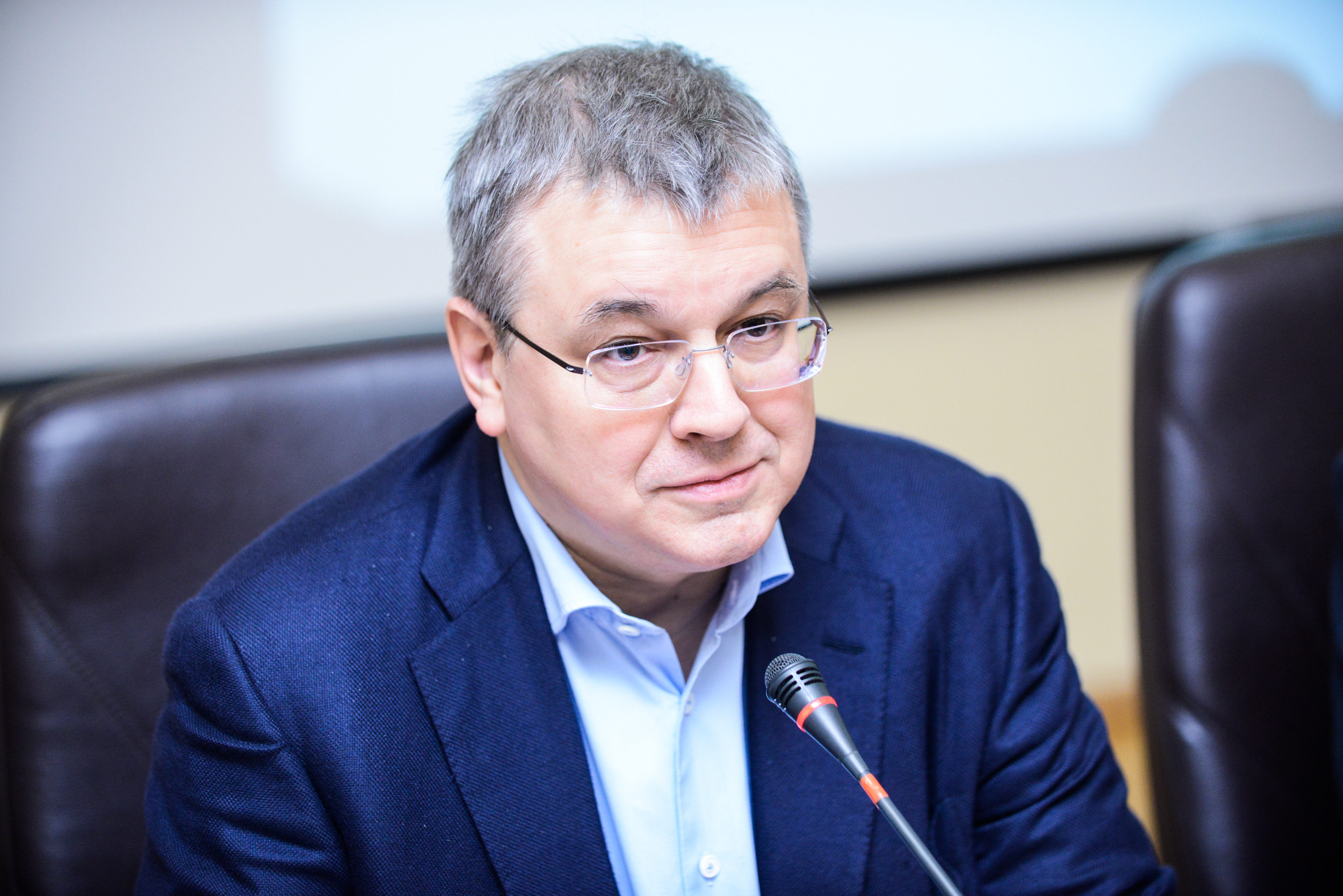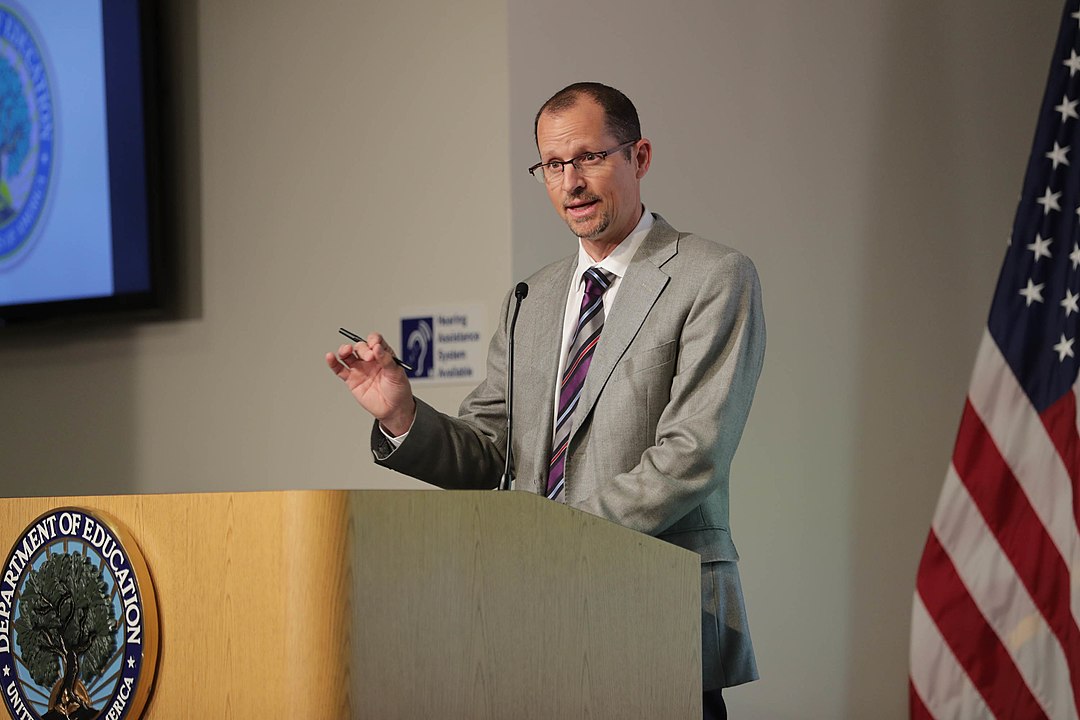‘Distance Education for Universities Is an Opportunity to Break into the Future’

The 2020 eSTARS conference, organized by HSE University in partnership with the global educational platform Coursera, has commenced. For the first time in its history, the event is being held entirely online. At the plenary session and the first panel session, representatives of the world's leading universities, their associations, and educational platforms spoke about the role of digitalization in the development of higher education, the impact of the pandemic on education, and new approaches to how teachers and students can interact.
In his greeting to the conference participants, Minister of Science and Higher Education of the Russian Federation Valery Falkov noted that even before the pandemic, the digitalization of the economy had set the task of digitally transforming universities, research centres, and industrial partners. Online education has already become a clear global trend, and platforms are showing significant growth. At the beginning of the pandemic, leading Russian universities provided free access to more than 630 courses in various areas.
As HSE Rector Yaroslav Kuzminov emphasized, Russia considerably outpaces the rest of the world in online learning development, and this can be explained by Russia’s sheer size. At the same time, a number of Russian universities have demonstrated a resistance to the introduction of digital technologies. Weak university instructors, to whom students already prefer their ‘digital competitors’—i.e., instructors of leading universities—argue that distance education is not of high quality, and thus try to maintain their positions.
According to Yaroslav Kuzminov, for universities, distance education is an opportunity to break into the future and provide higher quality education. For a student, regardless of where they study, the options are limitless. In an increasing number of universities, massive online courses are replacing standard lectures, and this is understandable — only 15% of students usually attend these kinds of lectures, whereas massive online courses are attended by everyone who signs up for them. This frees up the time of professors: after their students have mastered the content of a course online, they can meet with those of them who are interested in the material.

The rector announced the upcoming launch of four new HSE online Master's programmes in conjunction with Coursera, in addition to the existing Master of Data Science programme implemented by the Faculty of Computer Science. Coursera CEO Jeff Magionkalda, in turn, noted that universities like HSE are at the forefront of innovation, and there is no other university in the world that cooperates with the educational platform so actively.

Mr. Magionkalda noted that the pandemic has significantly accelerated the digital transformation of education. With nearly 90% of universities around the world ending contact learning, Coursera launched an initiative to support university distance learning, and a similar initiative was launched for those who have lost their jobs. The number of Coursera enrollees has grown significantly: 76 million people worldwide take courses on the platform, including 2 million people in Russia. Collaboration with government organizations and industry partners has also been established: more than 2,000 companies around the world use its courses to improve their employees’ digital skills. ‘Students want the skills of the future to help them get the jobs of the future,’ said Jeff Magionkalda.
Luciano Saso, Vice-Rector of European University Networks, professor of pharmacy and medicine at Sapienza University of Rome, and President of the Network of Universities of European Capitals (UNICA), emphasized in his speech the benefits of online education, which became evident during the pandemic. First of all, he said, this concerns academic mobility. It has become clear that a professor might not move to another university to merely teach one short course there. In the same way, great opportunities have emerged for students to communicate with professors around the world and create international research groups. Luciano Saso showed two photographs of the Anatomical Theatre in Genoa—one before the pandemic and one after: in the first it looks the same as several centuries ago, while in the second, it is a modern auditorium with digital equipment for event broadcasting.
At the university session ‘The Impact of COVID-19 on Education: Challenges and Successful Practices’, the Italian professor’s thesis on the new academic mobility was continued by his Spanish colleague Carmela Calés Bourdet, Vice-Rector for Internationalization of Universidad Autónoma of Madrid. She suggested using the term ‘blended mobility’, which in the context of digital development becomes mobility for all. European universities had taken the first steps towards a transition to blended mobility by combining virtual and physical mobility even before the pandemic, and it was received with great enthusiasm. The educational process in this model involves both contact hours and learning using digital technologies, as well as both listening to lectures and engaging in teamwork.
‘Thanks to digital technologies, it was possible to remove many barriers to the organization of the educational process associated with time and space,’ said HSE Vice Rector Sergei Roshchin. ‘HSE University has been able to invite colleagues from various universities around the world by forming the Institute of Digital Professors. International colleagues now teach classes at our university, and this is an important element in improving the quality of education. In addition, we now have the opportunity to conduct online courses for all four of HSE’s campuses in four Russian cities at the same time.’
In his presentation, Vice Rector Roshchin also stressed that massive online courses, which previously seemed to be the main innovation, are now becoming just one element of the distance learning system. This system should be complemented by other elements of online education related to direct communication between teachers and students. There is a serious demand for tutoring, which can only exist in a synchronous format, and for communication via video conference.
This idea was supported by Sorin Costreie, Vice-Rector of the University of Bucharest. ‘We need to pause and analyze: are we just delivering information to students or do we need a real dialogue with them that is interactive? A professor does not need to be a guru; their ability to communicate with students is much more important. The problem of students turning off their cameras during class, of course, does exist, and the language of gestures and facial expressions are also an important part of communication. One way or another, we are now working in a new reality, and we need to learn to adapt to it,’ he said.
Francisco Marmolejo, Education Advisor for the Qatar Foundation, which specializes in education, research, and community development, recalled the 1997 words of the American management theorist Peter Drucker that universities will not survive unless they change the way in which they transfer knowledge. Now this method has changed, and very quickly at that. Another issue is that the transition to new technologies is limited by the digital divide, and some people cannot learn simply due to not having a computer with Internet. Therefore, the main challenge facing education all over the world is to reduce the inequalities that arise from online learning. It is also necessary to look for new ways to engage students so that they do not fall asleep or switch to online games or chats with friends during class.
Ren Yi, Pro Vice-Chancellor of the University of Southern Queensland (Australia), spoke about the need to create an ecosystem of support for distance learners. For example, universities should provide a support hotline with 24/7 access from various devices. It is also necessary to support teachers: before the pandemic, many of them had no online experience at all, and universities had to quickly integrate new technologies into the learning process and teach professors how to conduct classes online and record lectures in video studios. Ronghuai Huang, Co-Dean of the Smart Learning Institute of Beijing Normal University, suggested that lengthy lectures should not be held online and that videos should be limited to 15 minutes or less so that students are not overwhelmed.
See also:
Early-Career Researchers Discuss Cooperation between Russia and Arab States
HSE University has hosted a conference entitled ‘Russia—The Arab World: Digital Future and Youth Cooperation,’ organised by the Faculty of World Economy and International Affairs (WEIA). The meeting took place in the run-up to the first Russian–Arab summit, due to be held in Moscow on October 15, 2025.
Pivot to the East: A Comprehensive Study of the Cultural and Civilisational Centres of the Non-Western World is the Top Priority
China and the Chinese world, South Asia, Southeast Asia, the Arab countries, Iran, Turkey, Central Asia and Africa are gaining new significance in Russia’s foreign policy. However, we do not know enough about the Eastern countries. It is necessary to change the priorities in education, starting from grammar school. Prospects for the development of domestic Oriental studies in the context of the new stage in the development of the system of international relations were discussed at a round table at HSE University.
‘I Admire HSE Students’ Eagerness to Learn, to Discuss, to Broaden Their Perspectives’
Robert Romanowski was a ‘Digital Professor’ at HSE University in November 2021. In his interview for the HSE News Service, he talked about the specifics of online teaching, his course on Strategic Branding, and the skills that are essential for marketing professionals today.
Russia and Africa: Time to Expand Cooperation
There is major potential for economic and humanitarian cooperation between Russia and African countries. Particularly, Russian organisations and universities can help transfer competencies and knowledge in the fields of agriculture, energy, industrial production, environmental management, climate change, and public administration. Experts and representatives of African embassies in Russia discussed these issues at the round table ‘Russia-Africa Sharing Knowledge’ hosted by HSE University.
The Brain in Space: Investigating the Effects of Long Spaceflights on Space Travellers
As part of an international project conducted with the participation of Roscosmos and the European Space Agency, a team of researchers used differential tractography to analyse dMRI scans ofcosmonauts’ brains and found significant changes in brain connectivity, with some of the changes persisting after seven months back on Earth. The paper is published in Frontiers in Neural Circuits.
HSE University-Perm and the Training Centre of the Uzbek Ministry of Finance Sign Cooperation Agreement
HSE University in Perm has become the first academic partner of the Training Centre under the Ministry of Finance of the Republic of Uzbekistan. The parties have signed a cooperation agreement in education and research.
HSE University Strengthens Ties with Netherlands in Agricultural Research and Education
On November 9, 2021, HSE University signed a memorandum of understanding with Wageningen University & Research, a major university in the Netherlands and one of the leading agricultural research institutes in the world. Participants of the signing ceremony included HSE University Rector Nikita Anisimov, President of the Wageningen University & Research Executive Board Professor Louise Fresco, and Dutch Ambassador to Russia Gilles Beschoor Plug.
The Majority of Russians Do Not Support Microchip Implants
The majority of Russians would not agree to being fitted with microchip implants for any purposes—medical or otherwise. A joint study conducted by HSE University’s International Laboratory for Applied Network Research and Aventica found that respondents believe the risks of personal data leaks and misuse to be too high.
‘We Can Now Say That the Finance Conference Is Global’
The 10th International Moscow Finance Conference, organized by HSE ICEF, took place on October 29–30 online. Vladimir Sokolov, Head of the International Laboratory of Financial Economics, which hosted the conference, talks about the participants, the key presentation topics and how they will impact the global economy.
HSE University Scholars Study Green Transition Risks and Greenhouse Gas Emission Regulation
The UN Climate Change Conference is taking place from October 31 to November 12 in Glasgow. The conference focuses on preventive measures against the catastrophic and irreversible consequences of rising average global air temperatures. Igor Makarov, Head of the HSE Laboratory for Economics of Climate Change, will be taking part in the Glasgow conference. In the following interview, he speaks about the pressing problems Russia and the world are facing, and the research HSE scholars are doing on climate change.


